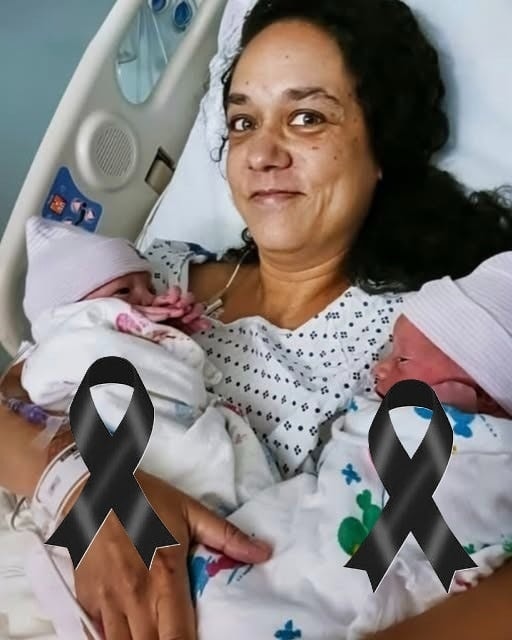What happened next inside the Cedar Falls Fire Station unfolded like a carefully orchestrated storm, a blend of controlled chaos and disciplined urgency that only those trained in life-or-death situations could fully comprehend. The station, usually a place of camaraderie and routine drills, now hummed with a tension that was palpable, thick enough to touch. Firefighters, usually the image of calm confidence, moved with deliberate swiftness, their every motion measured yet fluid, carrying the tiny, fragile bodies of the toddlers with an almost reverent care. The children were gently lifted onto cots lined up like miniature hospital beds, each one meticulously prepared with blankets and pillows that somehow made the sterile surroundings feel warmer, less intimidating. As they worked, the firefighters spoke in low, soothing tones, their words deliberate and carefully chosen—not to frighten, not to alarm, but to offer just enough reassurance to steady Emma, who hovered at the edge of panic. She clutched a crumpled tissue in her small hand, fingers twisting it absently as if the act could somehow anchor her to calmness. Her eyes darted between the tiny patients and the masked faces of the firefighters, replaying the chaotic scene at the park over and over in her mind, questioning herself, feeling an unbearable weight of responsibility that she could not shake.
Soft hisses of oxygen punctuated the tense air, rhythmic and almost hypnotic, as the team monitored every shallow breath, every subtle flicker of movement. The toddlers’ tiny chests rose and fell beneath miniature masks, the sounds of their fragile breathing mingling with the distant, muted ringing of emergency radios. Every movement was deliberate, every touch precise, yet there was a gentleness that belied the intensity of the moment. Emma watched it all, her chest tight with guilt and fear, each second stretching endlessly as the professionals moved seamlessly around her, their presence both awe-inspiring and terrifying. She remembered the laughter in the park just moments ago, the sunshine, the swings, the carefree chaos of children at play, and contrasted it with the antiseptic smells, the beeping monitors, and the clinical focus of the fire station. The shift was jarring, almost surreal, yet in that surrealism, Emma began to recognize the incredible value of preparation, skill, and calm in the face of uncertainty.
When paramedics finally arrived, their entry added another layer of precision and purpose to the scene. They quickly assessed the situation, pulling out portable equipment with practiced hands, checking vitals, running through the familiar litany of medical questions, each query delivered in a voice that balanced authority with reassurance. They asked carefully constructed questions about allergies, recent meals, possible exposures, and subtle symptoms that might have been overlooked in the initial panic. Slowly, a picture began to emerge, a plausible culprit behind the terrifying episode: an unexpected allergic reaction. Likely triggers—pollen from blooming flowers in the park, perhaps a plant brushed against during play—were hypothesized, their invisible threat suddenly given a face in the minds of those gathered. Every question asked, every hypothesis tested, was a step toward clarity, a painstaking journey through uncertainty toward relief.
By the time doctors confirmed the diagnosis, the most acute danger had passed. The toddlers’ breathing had steadied, their color gradually returning from the alarming bluish pallor to a soft, healthy pink. Their small bodies, once rigid with distress, relaxed under the attentive care of the medical teams. Emma, who had felt paralyzed by guilt, watched as the tension drained from their forms, her own trembling finally beginning to subside. It was as if the room exhaled along with her, a collective release of held breath, a quiet acknowledgment that a disaster had been narrowly avoided.
Later that evening, back home, the contrast between the day’s chaos and the calm of night was almost shocking. The toddlers slept peacefully, their small chests rising and falling in steady rhythm, the shadows of the day’s terror replaced by the gentle light of bedside lamps. Emma sat quietly nearby, reflecting on the delicate balance that life often demands—the invisible threats that can lurk behind even the most ordinary routines, the critical moments when instinct, knowledge, and courage intersect to make the difference between calamity and safety. The day had been a harsh, sobering lesson: disasters often appear suddenly, unannounced, and without warning. Yet it was also a lesson in human capability, in the power of swift, decisive action, in the bravery that emerges when ordinary people step into extraordinary circumstances.
In the quiet of the night, as the house settled into the gentle hum of sleeping children and ticking clocks, Emma allowed herself a deep breath she hadn’t realized she had been holding. She understood now, more viscerally than ever, the value of vigilance, of education, of preparation. Even the smallest choices—calling for help without delay, following instructions carefully, holding a child’s hand through a frightening ordeal—could form the narrow line between fear and survival. That line, she realized, is often invisible until the moment it must be crossed, and crossing it requires a combination of instinct, courage, and love. And as she finally allowed herself to close her eyes, the day’s terror slowly settling into memory, Emma understood something that words could barely capture: even in the most ordinary places, amid everyday routines, extraordinary courage quietly unfolds, changing the course of lives in ways that will resonate forever.
